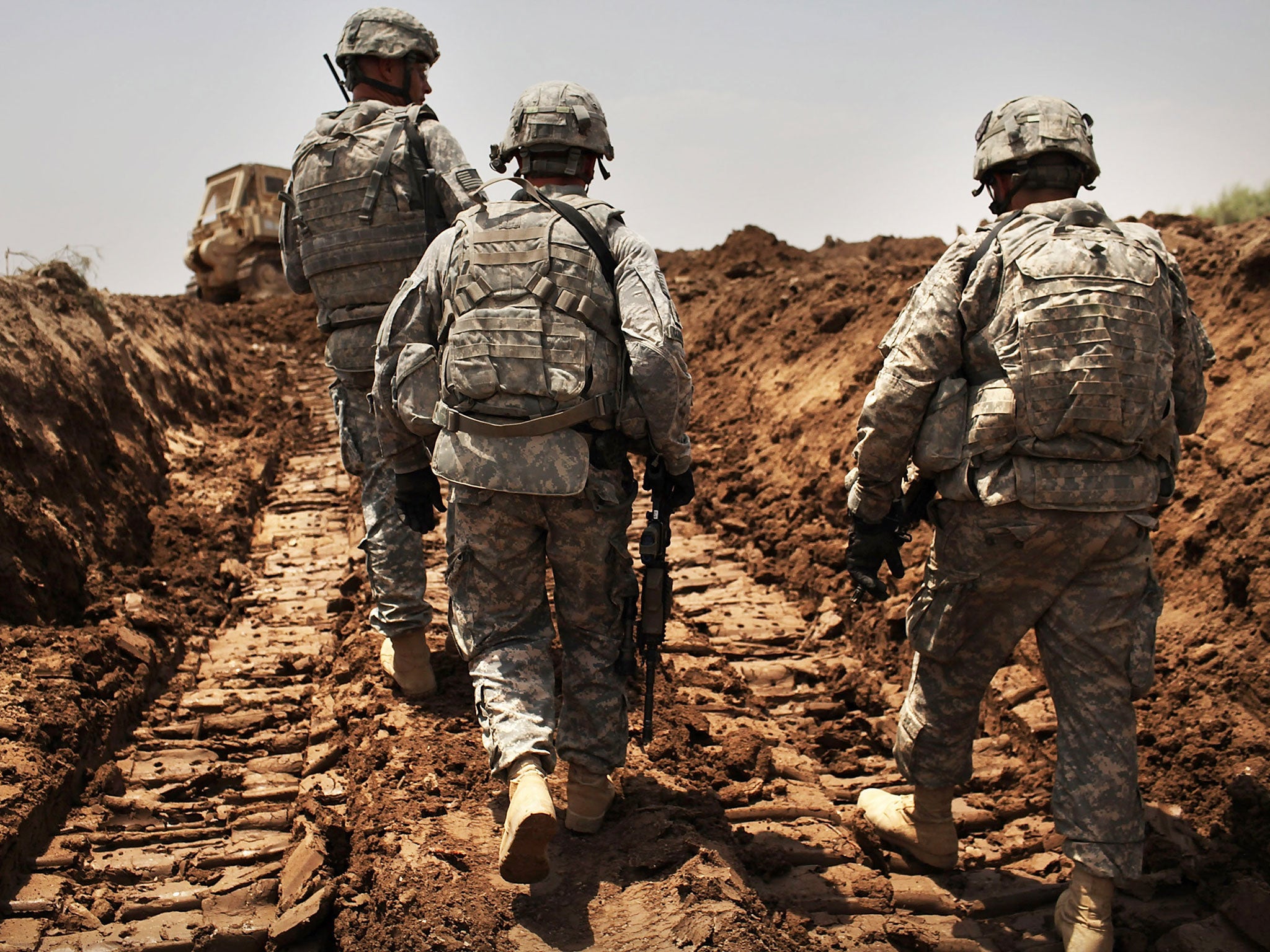Islamic State: Is prospect growing of US being drawn into another ground war in Iraq?
Top military commander would recommend deploying US soldiers alongside Kurdish and Iraqi forces

Your support helps us to tell the story
From reproductive rights to climate change to Big Tech, The Independent is on the ground when the story is developing. Whether it's investigating the financials of Elon Musk's pro-Trump PAC or producing our latest documentary, 'The A Word', which shines a light on the American women fighting for reproductive rights, we know how important it is to parse out the facts from the messaging.
At such a critical moment in US history, we need reporters on the ground. Your donation allows us to keep sending journalists to speak to both sides of the story.
The Independent is trusted by Americans across the entire political spectrum. And unlike many other quality news outlets, we choose not to lock Americans out of our reporting and analysis with paywalls. We believe quality journalism should be available to everyone, paid for by those who can afford it.
Your support makes all the difference.The once unpalatable prospect of America being drawn into another ground war inside Iraq appeared to be closer to consideration last night after one of the country’s top military commanders told Congress that he would recommend deploying US soldiers alongside Kurdish and Iraqi forces should the latest campaign to destroy Islamic State (Is) fail.
General Martin Dempsey, the chairman of the Joint Chiefs of Staff, told a Senate panel on Tuesday that he could envisage recommending US soldiers to embed with the Iraqi and Kurdish forces in a “close combat advising” role.
Dempsey and Defence Secretary Chuck Hagel came under scrutiny from lawmakers in the first hearing examining President Obama’s latest campaign to counter the terrorist threat from Middle East extremists. “If we reach the point where I believe our advisers should accompany Iraqi troops on attacks against specific [Isis] targets, I will recommend that to the president,” he told the Senate Armed Services Committee.
The White House has been cautious with its use of language following the deployment of 1,600 US troops to Iraq in June, preferring to describe their role there as “military advisers” and stressing military combat is off the agenda. Nonetheless, the testimony from Dempsey in the first high-profile hearing of its kind, was the closest Pentagon leaders to suggesting that could change in the weeks and months ahead.
The remarks drew a prompt rebuttal from the White House. President Obama "will not deploy ground troops in a combat role into Iraq or Syria," spokesman Josh Earnest said, later adding that Dempsey was "referring to a hypothetical scenario in which there might be a future situation where he might make a tactical recommendation."
Earlier this week the US opened its programme of airstrikes southwest of Baghdad in a broader military mission in Iraq designed to address the sweeping threat of Is militants. The latest round of strikes hit anti-aircraft artillery, a truck and two boats on the Euphrates River thought to have been resupplying Is militants.
Dempsey said Syria could also be the site of tactical US air strikes despite concerns that could pose huge diplomatic and legal problems with al-Assad regime. “This will not look like 'shock and awe' because that is not how ISIL is organised,” Dempsey said, referring to the air bombardment on Baghdad at the start of the 2003 Iraq war. “But it will be persistent and sustainable.”
Congress is this week widely expected to approve a request from Obama for authorisation to arm and train moderate Syrian rebels, one of numerous controversial aspects of the latest program.
The Senate hearing in Washington was repeatedly interrupted by anti-war protesters, shouting slogans such as, "There is no military solution." One protester was escorted out of the room while holding a sign that read: "More war = More extremism."
Join our commenting forum
Join thought-provoking conversations, follow other Independent readers and see their replies
Comments